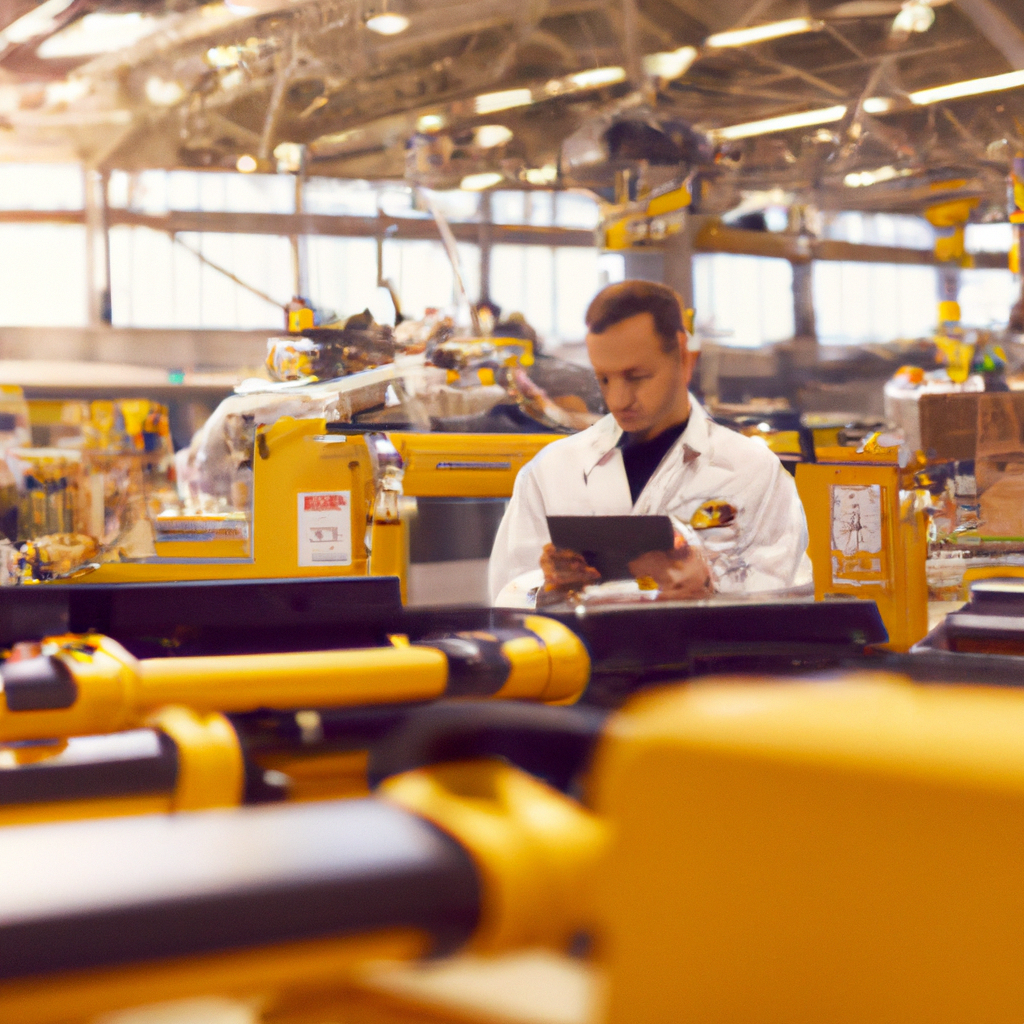
As technology continues to evolve at an exponential rate, the manufacturing industry has not been left behind. The integration of artificial intelligence (AI) in manufacturing processes has brought significant changes that have revolutionized the industry and its operations. In this article, we will explore the benefits of implementing AI in the manufacturing sector, which have surprised many players in the industry.
Enhanced Efficiency and Accuracy
One of the most significant benefits of implementing AI in the manufacturing sector is the enhanced efficiency and accuracy that it provides. AI-powered machines and robots can perform tasks that would take human workers a long time to complete in a matter of seconds. These machines are not prone to human errors and can work continuously without tiring, making them ideal for repetitive tasks.
With AI, manufacturers can also optimize their production processes and reduce waste by identifying inefficiencies and making adjustments in real-time. This results in improved productivity, faster time-to-market, and increased profitability.
Improved Quality Control
Quality control is a critical aspect of any manufacturing process. With AI, manufacturers can improve their quality control processes by identifying defects and potential issues before they become major problems. AI-powered machines can detect even the smallest defects in products, ensuring that only high-quality products make it to the market.
Moreover, AI can analyze data from various sources, such as sensors and cameras, to monitor the production process and identify any anomalies. This helps manufacturers to identify the root cause of defects and take corrective action, ensuring that the problem does not recur.
Streamlined Supply Chain Management
The manufacturing industry relies heavily on the supply chain to ensure that materials and products are delivered on time. Implementing AI in the manufacturing sector can help streamline supply chain management, from sourcing raw materials to delivering finished products to customers.
With AI, manufacturers can predict demand and optimize their inventory levels, reducing the risk of stockouts and overstocking. AI can also help manufacturers to track the movement of goods in real-time, ensuring that products are delivered on time and in the right condition.
Improved Safety
The safety of workers is a top priority for any manufacturer. With AI, manufacturers can improve safety in the workplace by automating dangerous and repetitive tasks. This reduces the risk of workplace accidents and injuries, ensuring that workers are safe and healthy.
AI can also monitor the production process and identify potential safety hazards, such as equipment malfunction or product defects. This allows manufacturers to take corrective action before accidents happen, ensuring that workers are not put in harm’s way.
Cost Savings
Implementing AI in the manufacturing sector can lead to significant cost savings for manufacturers. By automating tasks, manufacturers can reduce labor costs and increase productivity. AI can also help manufacturers to optimize their production processes, reducing waste and improving efficiency, which leads to cost savings.
Moreover, AI can help manufacturers to predict maintenance needs for equipment, reducing the risk of unexpected downtime and costly repairs. This results in increased uptime and reduced maintenance costs.
Improved Customer Satisfaction
In today’s competitive market, customer satisfaction is critical for the success of any business. With AI, manufacturers can improve customer satisfaction by delivering high-quality products on time and at a competitive price.
AI can help manufacturers to optimize their production processes to ensure that products are delivered on time and in the right condition. This results in improved customer satisfaction and loyalty, which translates to increased revenue and profitability.
Competitive Advantage
Finally, implementing AI in the manufacturing sector can provide manufacturers with a competitive advantage. By automating tasks, optimizing production processes, and improving quality control, manufacturers can differentiate themselves from their competitors.
Moreover, AI can help manufacturers to innovate and develop new products, leading to increased revenue and market share. This results in a sustainable competitive advantage that can help manufacturers to thrive in today’s rapidly changing market.
Conclusion
In conclusion, the benefits of implementing AI in the manufacturing sector are numerous and significant. From enhanced efficiency and accuracy to improved safety and customer satisfaction, AI has revolutionized the manufacturing industry and its operations. Manufacturers that embrace AI can gain a competitive advantage, reduce costs, and increase profitability. As technology continues to evolve, it is clear that AI will play an increasingly important role in the manufacturing sector, and those that fail to adopt it risk falling behind their competitors.